Related Research Articles

Benjamin Disraeli, 1st Earl of Beaconsfield, was a British statesman, Conservative politician and writer who twice served as Prime Minister of the United Kingdom. He played a central role in the creation of the modern Conservative Party, defining its policies and its broad outreach. Disraeli is remembered for his influential voice in world affairs, his political battles with the Liberal Party leader William Ewart Gladstone, and his one-nation conservatism or "Tory democracy". He made the Conservatives the party most identified with the British Empire and military action to expand it, both of which were popular among British voters. He is the only British Prime Minister to have been born Jewish.

Camp David is a 125-acre (51 ha) country retreat for the president of the United States. It is located in the wooded hills of Catoctin Mountain Park, in Frederick County, Maryland, near the towns of Thurmont and Emmitsburg, about 62 miles (100 km) north-northwest of the national capital city of Washington, D.C. It is code named Naval Support Facility Thurmont. Technically a military installation, its staffing is primarily provided by the Seabees, Civil Engineer Corps (CEC), the United States Navy and the United States Marine Corps. Naval construction battalions are tasked with Camp David construction and send detachments as needed.
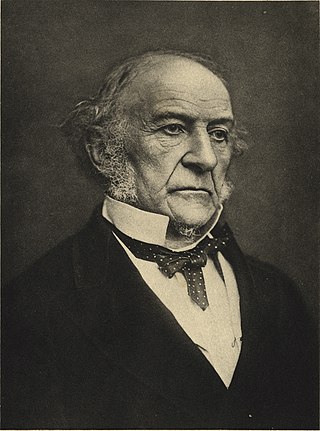
William Ewart Gladstone was a British statesman and Liberal Party politician. In a career lasting over 60 years, he was Prime Minister of the United Kingdom for 12 years, spread over four non-consecutive terms beginning in 1868 and ending in 1894. He also was Chancellor of the Exchequer four times, for over 12 years. Apart from 1845 to 1847, he was a Member of Parliament (MP) from 1832 to 1895 and represented a total of five constituencies.

The "Evil Empire" speech was a speech delivered by US President Ronald Reagan to the National Association of Evangelicals on March 8, 1983, at the height of the Cold War and the Soviet–Afghan War. In that speech, Reagan referred to the Soviet Union as an "evil empire" and as "the focus of evil in the modern world". Reagan explicitly rejected the notion that the United States and the Soviet Union were equally responsible for the Cold War and the ongoing nuclear arms race between the two nations; rather, he asserted that the conflict was a battle between good and evil.

William Stephen Ian Whitelaw, 1st Viscount Whitelaw, was a British Conservative Party politician who served in a wide number of Cabinet positions, most notably as Home Secretary from 1979 to 1983 and as de facto Deputy Prime Minister of the United Kingdom from 1979 to 1988. He was Deputy Leader of the Conservative Party from 1975 to 1991.

Maurice Harold Macmillan, 1st Earl of Stockton, was a British statesman and Conservative politician who was Prime Minister of the United Kingdom from 1957 to 1963. Nicknamed "Supermac", he was known for his pragmatism, wit, and unflappability.
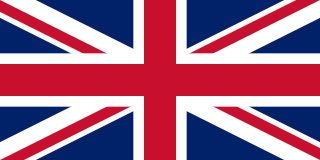
The United Kingdom of Great Britain and Ireland was a sovereign state in Northwestern Europe that was established by the union in 1801 of the Kingdom of Great Britain and the Kingdom of Ireland. The establishment of the Irish Free State in 1922 led to the remainder later being renamed the United Kingdom of Great Britain and Northern Ireland in 1927.
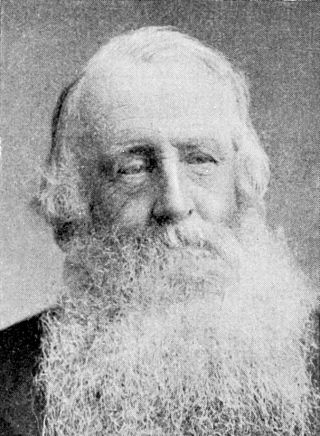
Edward Augustus Freeman was an English historian, architectural artist, and Liberal politician during the late-19th-century heyday of Prime Minister William Gladstone, as well as a one-time candidate for Parliament. He held the position of Regius Professor of Modern History at Oxford, where he tutored Arthur Evans; later he and Evans were activists in the Balkan uprising of Bosnia and Herzegovina (1874–1878) against the Ottoman Empire.
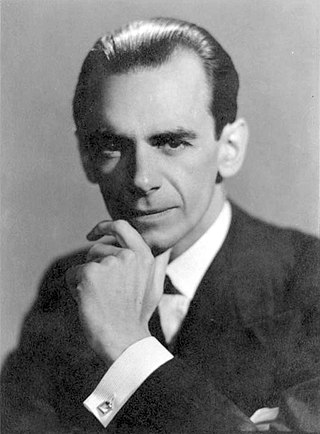
Sir Harold Malcolm Watts Sargent was an English conductor, organist and composer widely regarded as Britain's leading conductor of choral works. The musical ensembles with which he was associated included the Ballets Russes, the Huddersfield Choral Society, the Royal Choral Society, the D'Oyly Carte Opera Company, and the London Philharmonic, Hallé, Liverpool Philharmonic, BBC Symphony and Royal Philharmonic orchestras. Sargent was held in high esteem by choirs and instrumental soloists, but because of his high standards and a statement that he made in a 1936 interview disputing musicians' rights to tenure, his relationship with orchestral players was often uneasy. Despite this, he was co-founder of the London Philharmonic, was the first conductor of the Liverpool Philharmonic as a full-time ensemble, and played an important part in saving the Royal Philharmonic Orchestra from disbandment in the 1960s.

Gathorne Gathorne-Hardy, 1st Earl of Cranbrook, was a prominent British Conservative politician. He held cabinet office in every Conservative government between 1858 and 1892. He served as Home Secretary from 1867 to 1868, Secretary of State for War from 1874 to 1878, Lord President of the Council from 1885 to 1886 and as Chancellor of the Duchy of Lancaster until 1886. In 1878, he was appointed Secretary of State for India and thereafter was elevated to the peerage, entering the House of Lords as Viscount Cranbrook. He has been described as a moderate, middle-of-the-road Anglican, and a key ally of Disraeli.
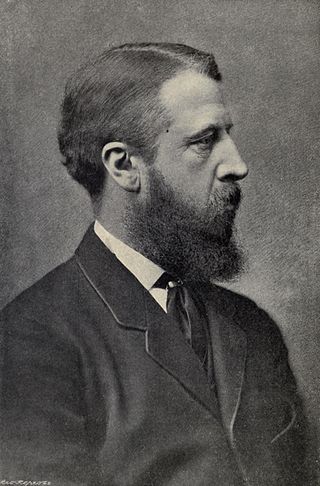
The 1880 United Kingdom general election was a general election in the United Kingdom held from 31 March to 27 April 1880.

The Carlton Club is a private members' club in the St James's area of London, England. It was the original home of the Conservative Party before the creation of Conservative Central Office. Membership of the club is by nomination and election only.
Robert Norman William Blake, Baron Blake,, was an English historian and peer. He is best known for his 1966 biography of Benjamin Disraeli, and for The Conservative Party from Peel to Churchill, which grew out of his 1968 Ford lectures.
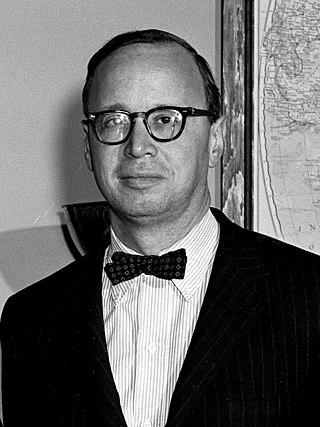
Arthur Meier Schlesinger Jr. was an American historian, social critic, and public intellectual. The son of the influential historian Arthur M. Schlesinger Sr. and a specialist in American history, much of Schlesinger's work explored the history of 20th-century American liberalism. In particular, his work focused on leaders such as Harry S. Truman, Franklin D. Roosevelt, John F. Kennedy, and Robert F. Kennedy. In the 1952 and 1956 presidential campaigns, he was a primary speechwriter and adviser to the Democratic presidential nominee, Adlai Stevenson II. Schlesinger served as special assistant and "court historian" to President Kennedy from 1961 to 1963. He wrote a detailed account of the Kennedy administration, from the 1960 presidential campaign to the president's state funeral, titled A Thousand Days: John F. Kennedy in the White House, which won the 1966 Pulitzer Prize for Biography or Autobiography.
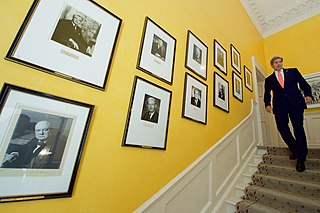
The article lists the records of prime ministers of the United Kingdom since 1721.

In political studies, surveys have been conducted in order to construct historical rankings of the success of the presidents of the United States. Ranking systems are usually based on surveys of academic historians and political scientists or popular opinion. The scholarly rankings focus on presidential achievements, leadership qualities, failures, and faults. Popular-opinion polls typically focus on recent or well-known presidents.

The Albany or, more correctly, and simply, Albany, is an apartment complex in Piccadilly, London. The three-storey mansion was built in the 1770s and divided into apartments in 1802.
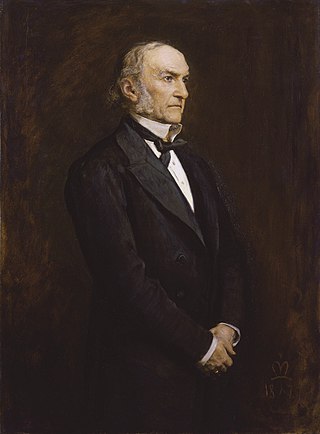
Gladstonian liberalism is a political doctrine named after the British Victorian Prime Minister and Liberal Party leader William Ewart Gladstone. Gladstonian liberalism consisted of limited government expenditure and low taxation whilst making sure government had balanced budgets and the classical liberal stress on self-help and freedom of choice. Gladstonian liberalism also emphasised free trade, little government intervention in the economy and equality of opportunity through institutional reform. It is referred to as laissez-faire or classical liberalism in the United Kingdom and is often compared to Thatcherism.
This bibliography includes major books and articles about British prime minister Margaret Thatcher and her policies in office.
References
- ↑ College, Bard. "Richard Aldous". www.bard.edu. Retrieved 5 October 2024.
- ↑ "the-versatile-historian". irishtimes.com. Retrieved 5 October 2017.
- ↑ "Here's-How-U.S.-TV-News-Is-Covering-King-Charles-III's-Coronation-Next-Weekend". adweek.com. Retrieved 28 April 2023.